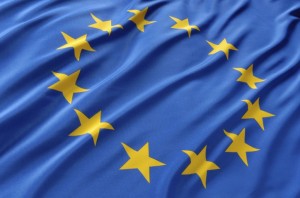EU reaffirms trade support for Ukraine and Moldova
 The Commission has today proposed to renew the suspension of import duties and quotas on Ukrainian exports to the EU for another year, while reinforcing protection for sensitive EU agricultural products.
The Commission has today proposed to renew the suspension of import duties and quotas on Ukrainian exports to the EU for another year, while reinforcing protection for sensitive EU agricultural products.
This is done in line with EU commitments to support Ukraine for as long as it takes.
These Autonomous Trade Measures (ATMs) have been in place since June 2022 and are a key pillar of the EU’s unwavering support for Ukraine and its economy. The measures help alleviate the difficult situation faced by Ukrainian producers and exporters as a consequence of Russia’s unprovoked and unjustified war of aggression.
While the main objective of the ATMs is to support Ukraine, the measures are also mindful of EU farmers’ and other stakeholders’ sensitivities. To this end, and considering a significant increase in imports of some agricultural products from Ukraine to the EU in 2022 and 2023, the renewed ATMs contain a reinforced safeguard mechanism. This makes sure that quick remedial action can be taken in case of significant disruptions to the EU market, or to the markets of one or more Member States.
For the most sensitive products – poultry, eggs and sugar – an emergency brake is foreseen which would stabilise imports at the average import volumes in 2022 and 2023. This means that if imports of these products were exceeding those volumes, tariffs would be reimposed to ensure that import volumes do not significantly exceed those of previous years.
In parallel, the Commission proposes to renew by another year the suspension of all remaining duties on Moldovan imports in force since July 2022.
The proposals will now be considered by the European Parliament and the Council of the European Union. The goal is to ensure a seamless transition from the current regime of ATMs to the new one, by the time the current regimes expires on 5 June 2024 for Ukraine and 24 July 2024 for Moldova.
In force since 4 June 2022, the ATMs for Ukraine have had a clear positive effect on Ukraine’s trade to the EU. Together with the Solidarity Lanes, the ATMs have ensured that trade flows from Ukraine to the EU have remained remarkably stable in 2022 and 2023, despite the major disruptions caused by the war and against the general trend of a decrease in Ukraine’s trade overall. Total EU imports from Ukraine amounted to 24.3 billion EUR in the 12 months to October 2023 compared to pre-war levels in 2021 of 24 billion EUR. Unilateral and temporary in nature, the ATMs significantly broaden the scope of tariff liberalisation under the EU-Ukraine Deep and Comprehensive Free Trade Area (DCFTA) by suspending all outstanding duties, quotas and safeguard measures on Ukrainian imports in Ukraine’s time of need. In parallel, the EU and Ukraine continue discussions about further permanent and reciprocal tariff liberalisation under Article 29 of the EU-Ukraine Association Agreement. The ATMs for Moldova have been in force since 25 July 2022.
Moldova’s exports to the rest of the world have suffered from Russia’s military aggression against Ukraine as they often relied on transit through Ukrainian territory and Ukrainian infrastructure. The ATMs have assisted Moldova’s efforts to re-orient exports via the EU. Overall, exports from Moldova to the EU increased from €1.8 billion in 2021 to 2.6 billion EUR in 2022. The Commission now proposes to renew the suspension of all duties on imports from Moldova by another year. This means in practice that exports of seven agricultural products from Moldova which are subject to tariff-rate quotas will continue to be fully liberalised: tomatoes, garlic, table grapes, apples, cherries, plums and grape juice.










